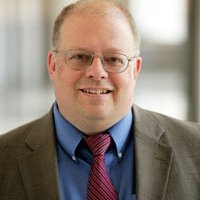Predictions for the Putin Presidency

It is commonplace to refer to the Russian presidency as one with sweeping powers, commented Steven Solnick, Associate Professor of Political Science, Columbia University, and former Title VIII-Supported Research Scholar, Kennan Institute at a Kennan Institute lecture on 27 March 2000. In reality, the Russian presidency is much weaker than it appears on paper. The newly elected Russian President, Vladimir Putin, will confront certain constraints regardless of what he chooses to do as president of Russia.
In examining the nature of the Russian presidency, Solnick compared the characteristics of executive succession in the Soviet era to succession in a Western democracy. Soviet leaders, Solnick stated, were at their weakest at the start of their term, and they consolidated power over time. Soviet-era leaders were selected by political elites put into place by their predecessors and had to spend the first years of their rule placing their own supporters in positions of power and influence. Yeltsin, however, was an exception to this rule and followed the Western model of beginning his term at his strongest with a "honeymoon" period.
When it comes to Putin, we do not know if the Western or Soviet model will apply, declared Solnick. Many commentators believe that he will start with his own honeymoon period, but that assumes that Russian democracy will continue to follow the Western model. Some observers note that Putin could not have come to power without the support of certain oligarchs and regional leaders, and therefore suspect that he may be a puppet. The recent consolidation of Russia's aluminum industry into the hands of Berezovsky and his allies is cited as evidence of Putin's lack of independence. The truth is that it is still too soon to tell, Solnick concluded. Even if Putin is able to put his own team into the government, there are still structural constraints on what he will be able to attempt or accomplish.
Putin's relationship with the Duma will be one such constraint. The January power-sharing agreement in the Duma between Putin's Edinstvo Party and the Communist Party split committee chairs between the two giving the post of Speaker to the Communists. This allocation of positions is locked in for the four-year duration of this Duma. Solnick predicted that this situation could pose a problem for Putin, tying him in the future to the compromises he had to make in the past in order to get elected. Putin may be faced with a Duma bearing a "nasty resemblance" to the sort of legislature that Yeltsin had to deal with in 1992-93, which was formed in part because of the compromises Yeltsin had to make to rise to power in 1990-91.
The fragmentation of power between the federal and regional levels will impose another important constraint on Putin. The erosion of power from the federal center to the regions is unlikely to be arrested easily, remarked Solnick. Regional governors have tremendous power within their own regions. Regional administrations are increasingly taking roles as large shareholders in regional enterprises, giving the governors economic power and resources for independent action.
Putin is unlikely to try to challenge the governors directly. Solnick noted that Putin, from his experience in running the unsuccessful reelection campaign for St. Petersburg governor Anatoly Sobchak, understands the power of elections to bring about incremental change better than other politicians do.
Thus, Solnick predicted, we are unlikely to see Putin attempt to return to a system of appointing governors or undertake any action which affects all governors simultaneously. Instead, Putin will engineer policy shifts to foster dissention among the governors. One example is Putin's suggestion to establish appointed officials, "Governors General," who will have supervisory responsibility over groups of regions. This would force governors within these macro regions to compete against each other for influence. At the same time, Putin will present his approach not as an attempt to take power for the center, but to restore equality among regions. Given the unequal powers and privileges enjoyed by different regions, this is something that most governors can support, declared Solnick.
Solnick concluded with observations based on Putin's published campaign biography and recent press quotes. It is clear, emphasized Solnick, that Putin remains incredibly respectful of and loyal to the KGB and its successor, the FSB. Putin originally studied law not because of an interest in law, but to be recruited by the KGB. He believes that the KGB was and is an organization of consummate professionals, and anything the KGB did in Soviet times that was "unfortunate" was the fault of the Communist Party.
Putin believes that the needs of the State trump the rights of the individual. Solnick cited one response from Putin regarding Andrei Babitsky--the Radio Free Europe/Radio Liberty correspondent who was arrested while reporting on the war in Chechnya--as particularly troubling. Asked whether Russia's trading Babitsky to Chechen fighters in exchange for Russian soldiers violated Babitsky's rights as a Russian citizen, Putin stated "he should behave according to the laws of his own country if he expects these laws to be observed with regard to him."
Author


Kennan Institute
The Kennan Institute is the premier US center for advanced research on Eurasia and the oldest and largest regional program at the Woodrow Wilson International Center for Scholars. The Kennan Institute is committed to improving American understanding of Russia, Ukraine, Central Asia, the South Caucasus, and the surrounding region through research and exchange. Read more

Explore More
Browse Insights & Analysis
The OSCE is a Good Value for America

Infographic | Russia's Illegal Annexation of Crimea

Russia’s Indigenous Communities and the War in Ukraine
